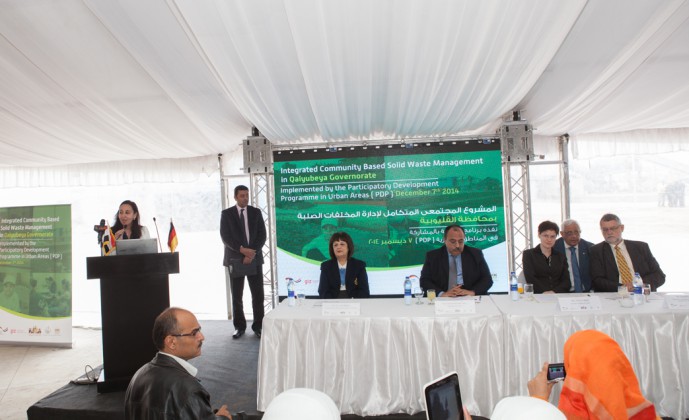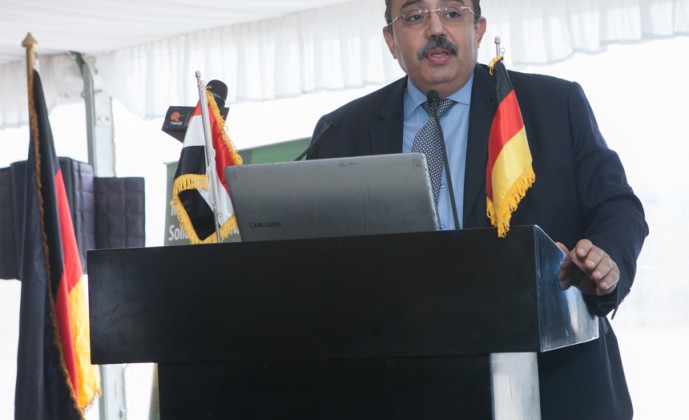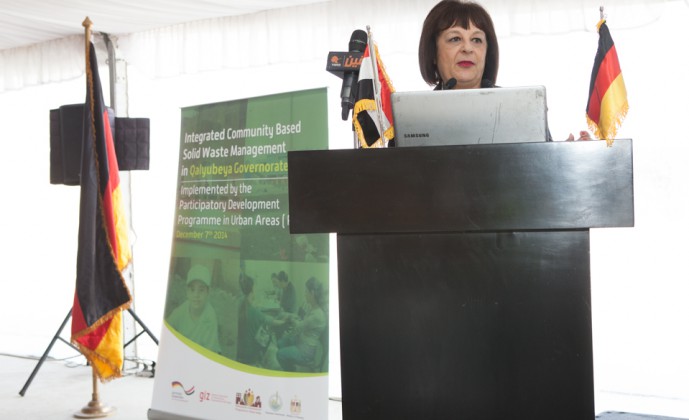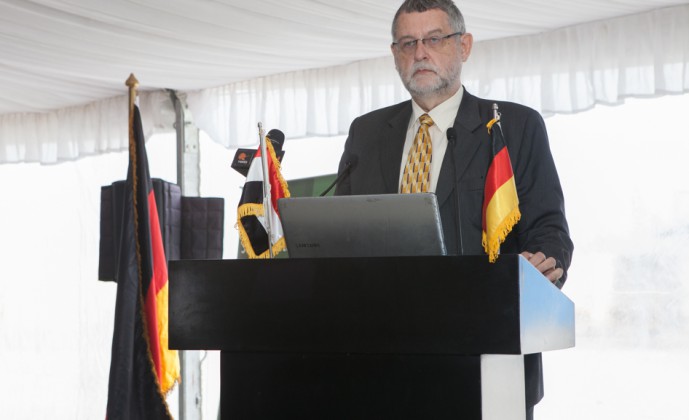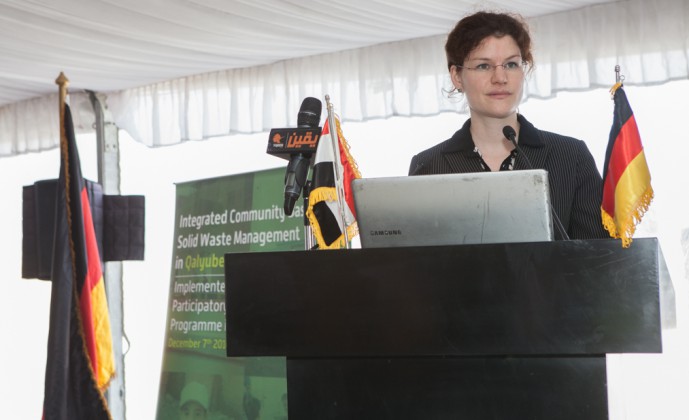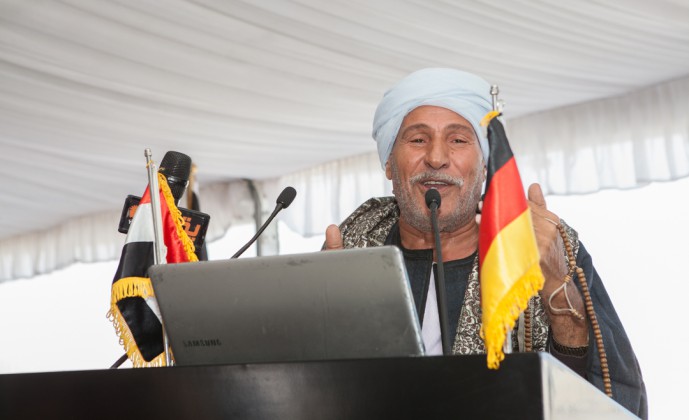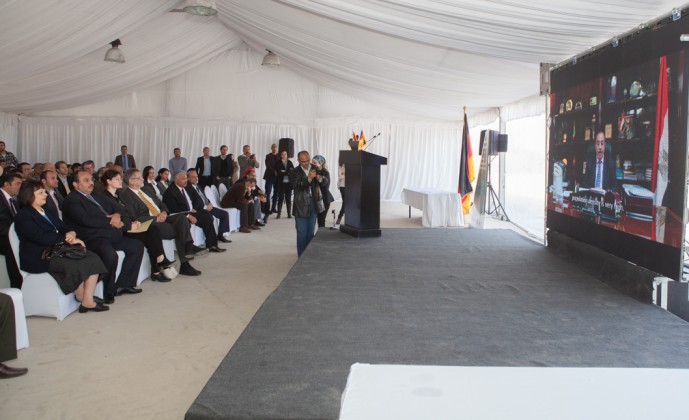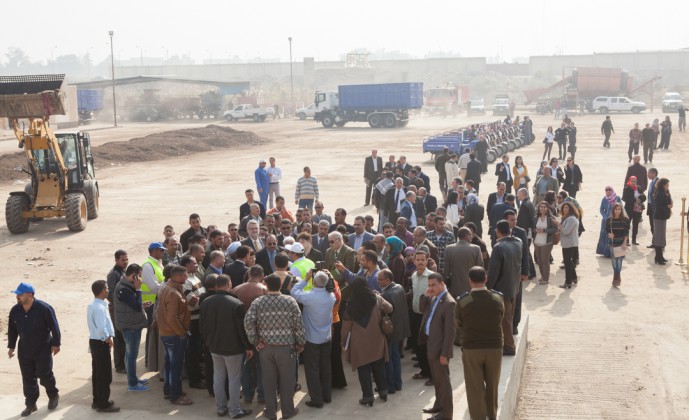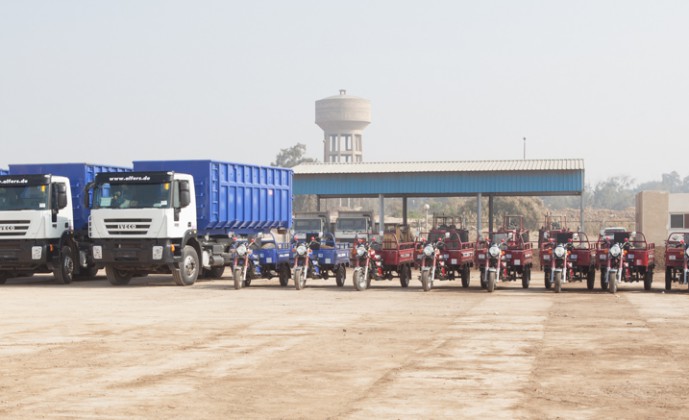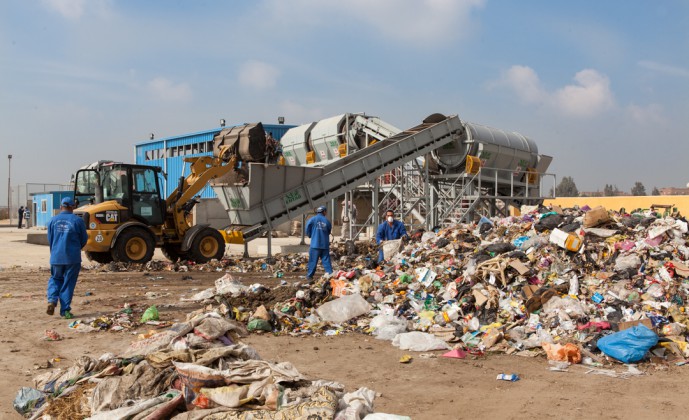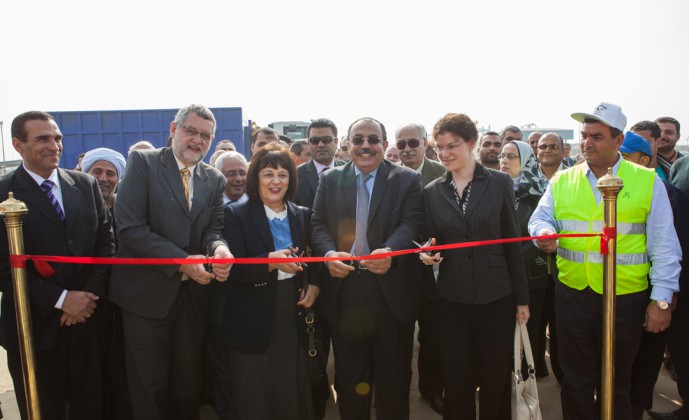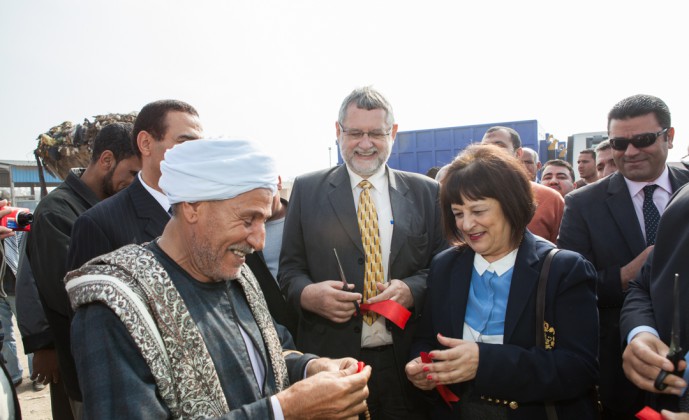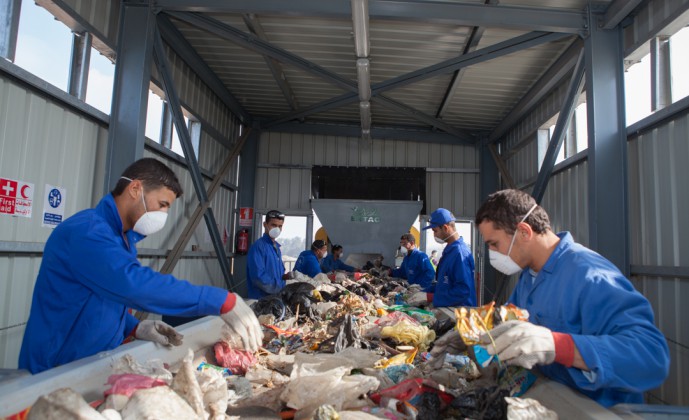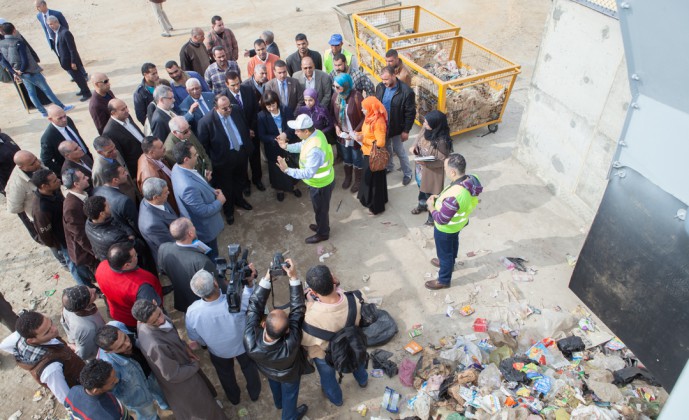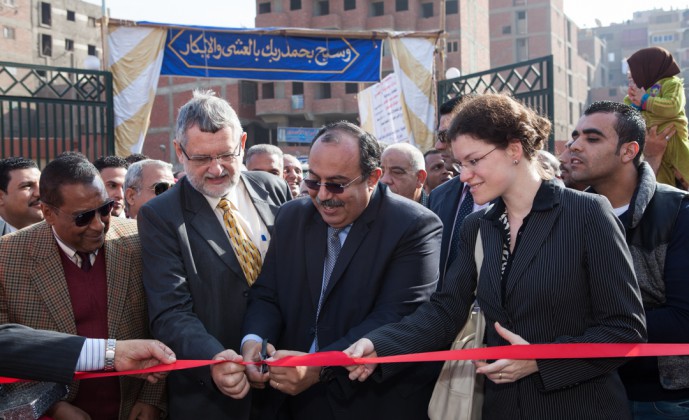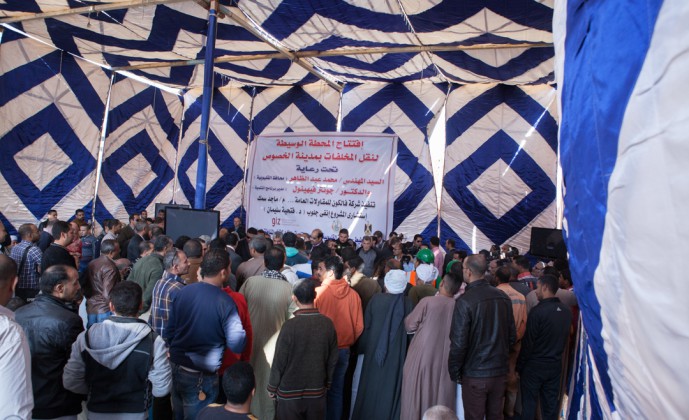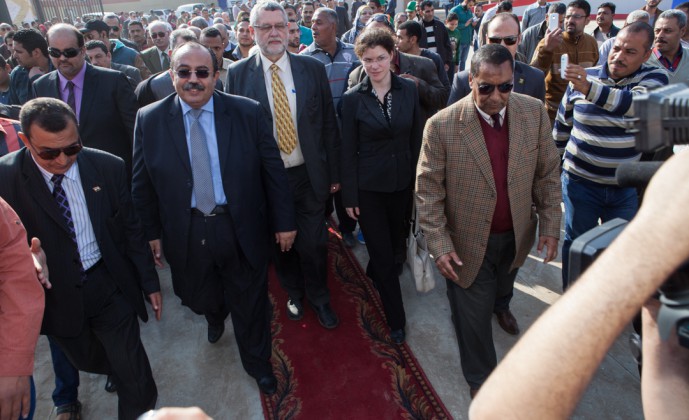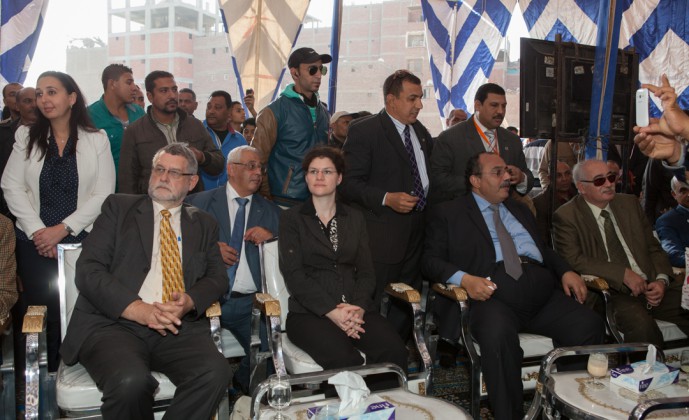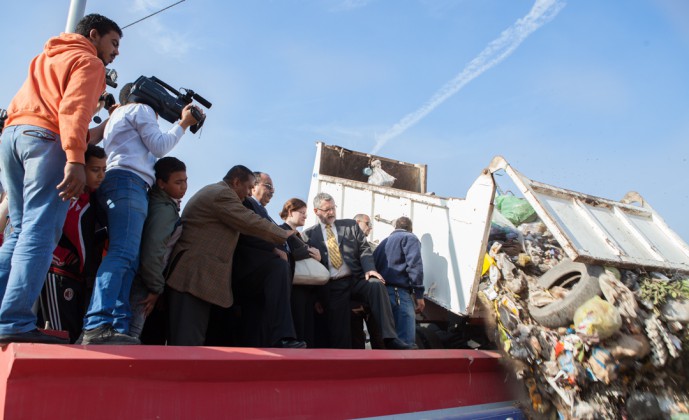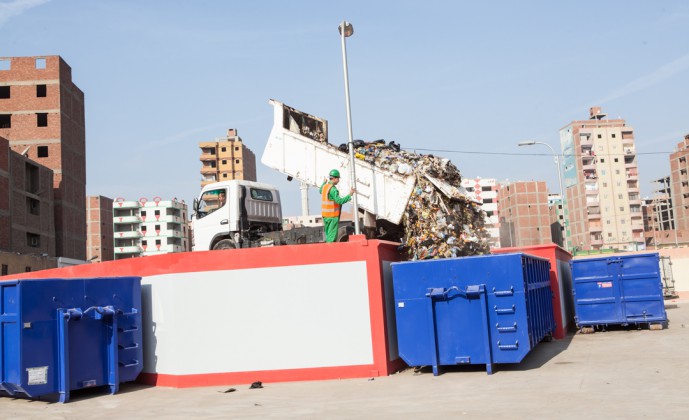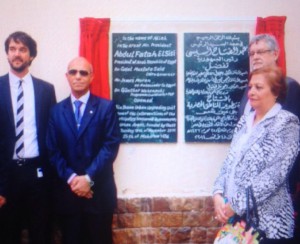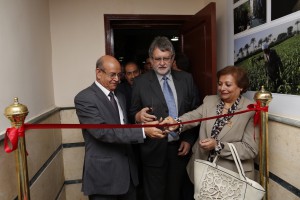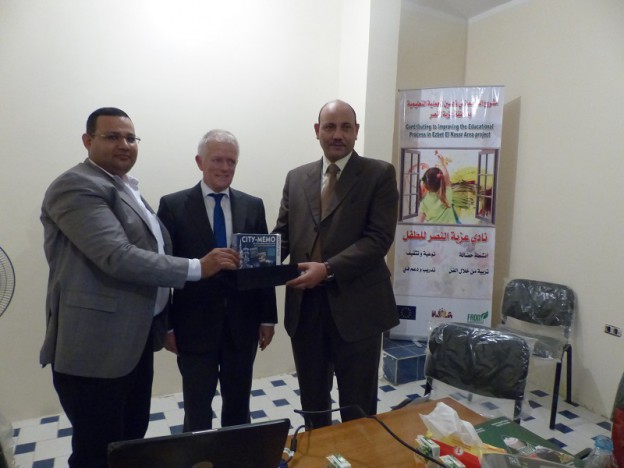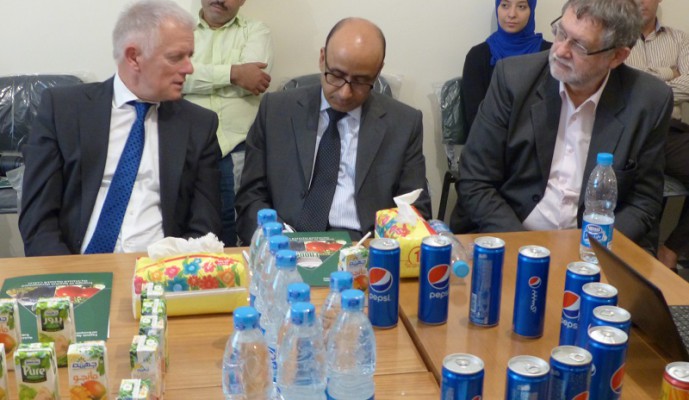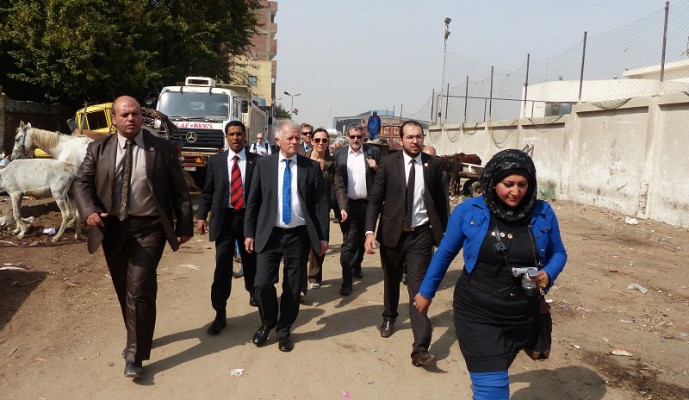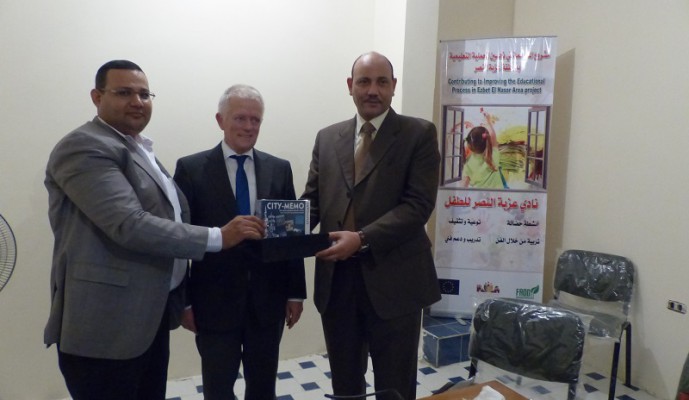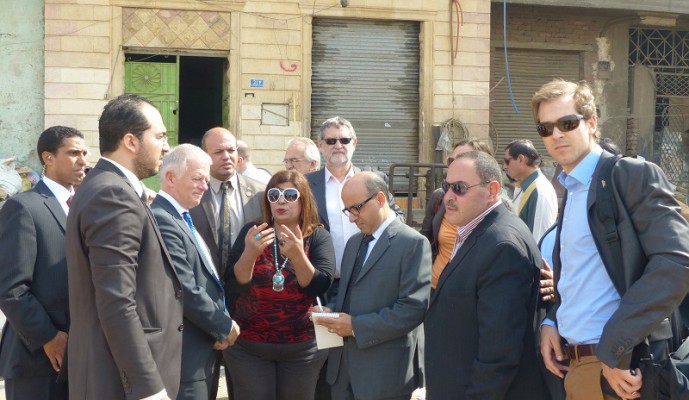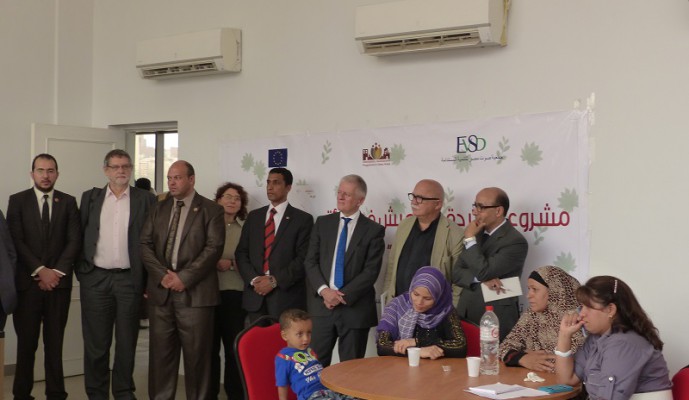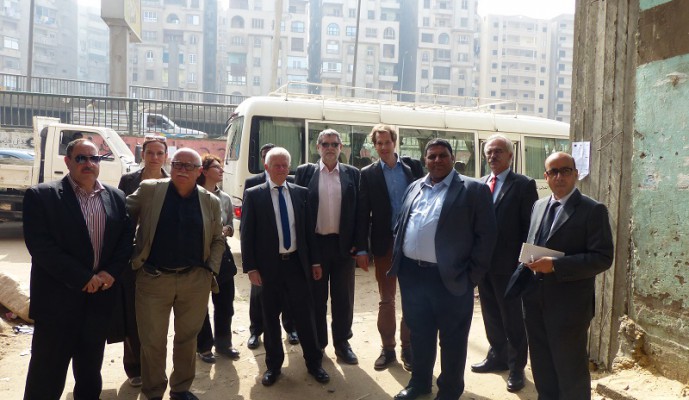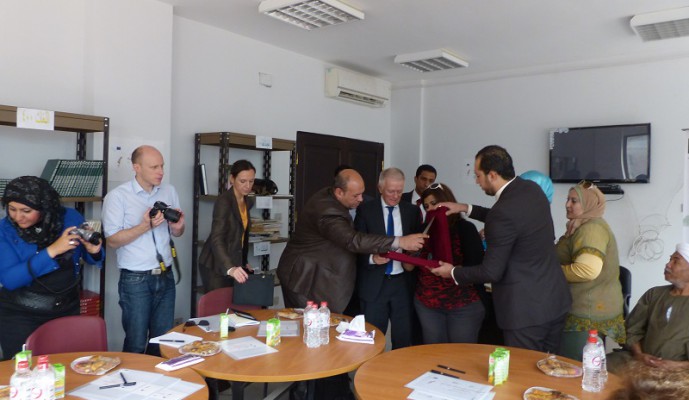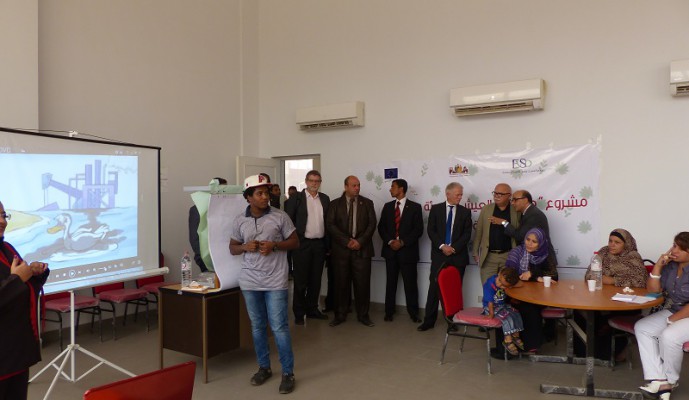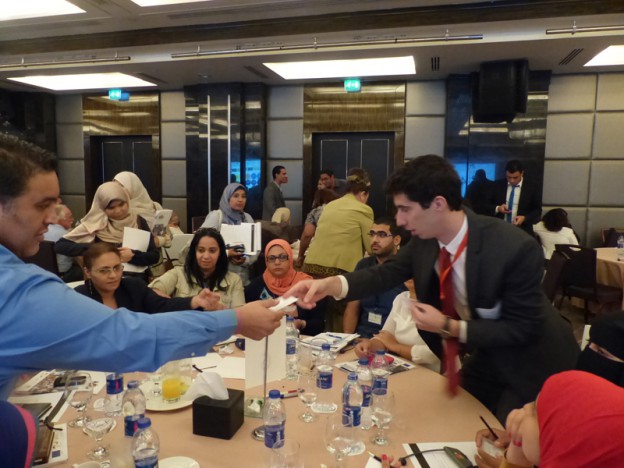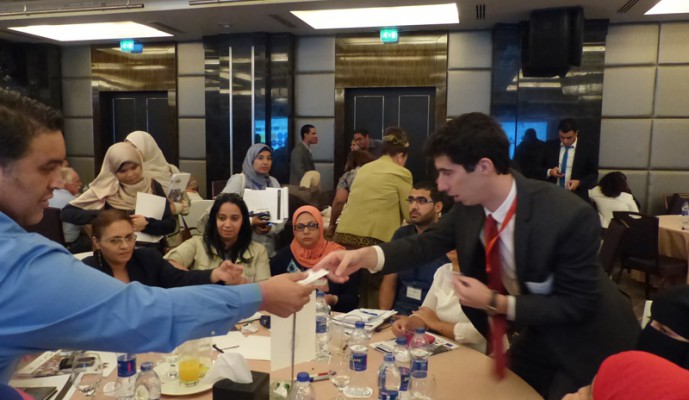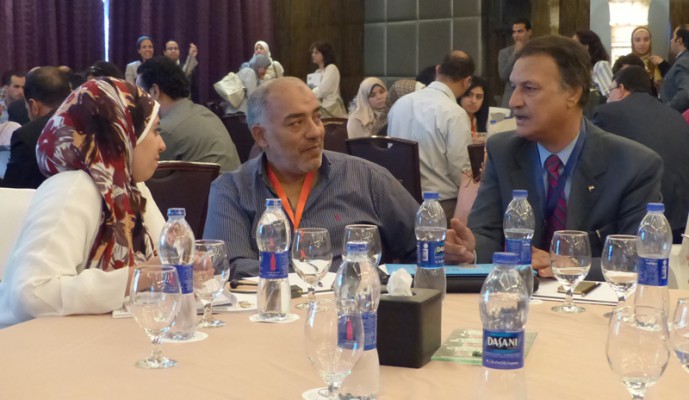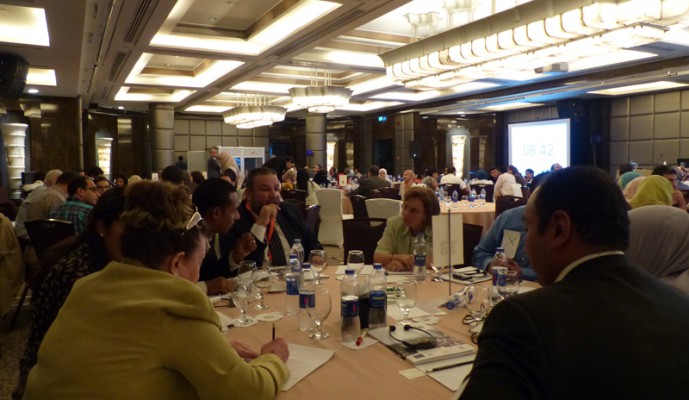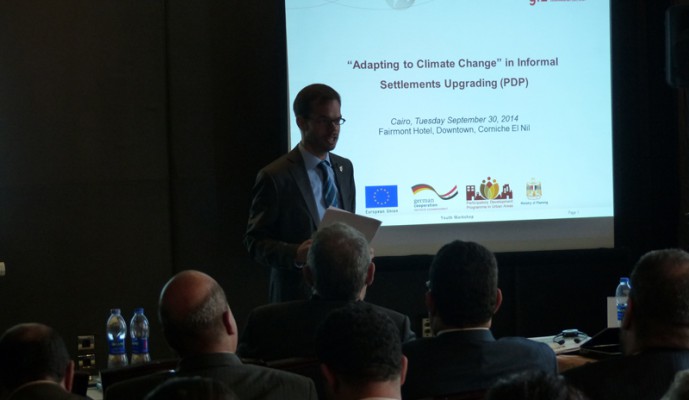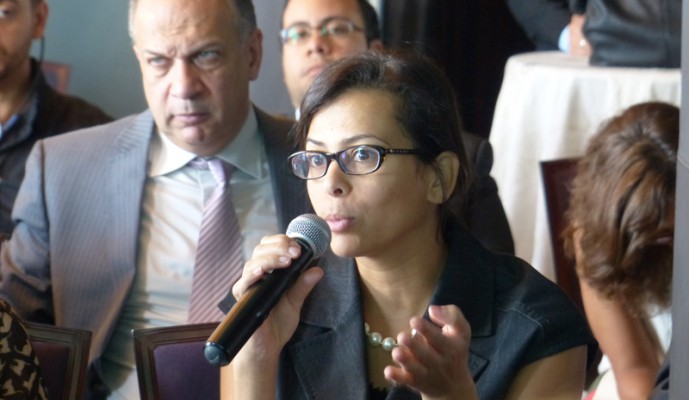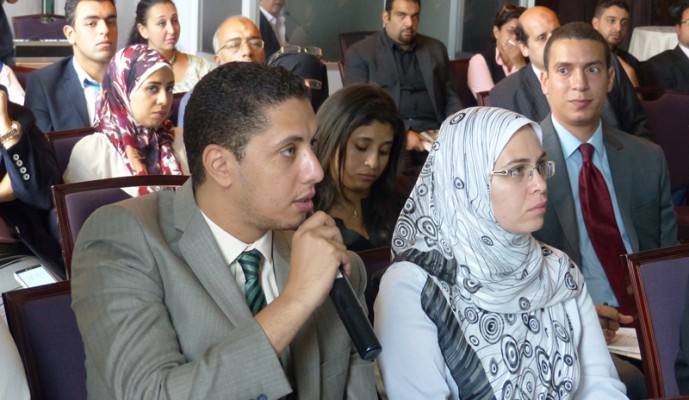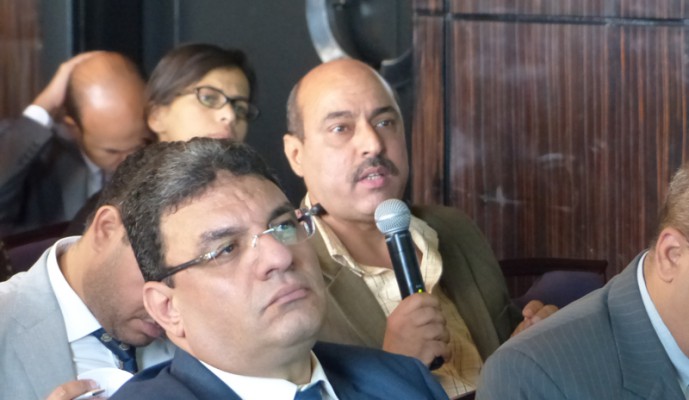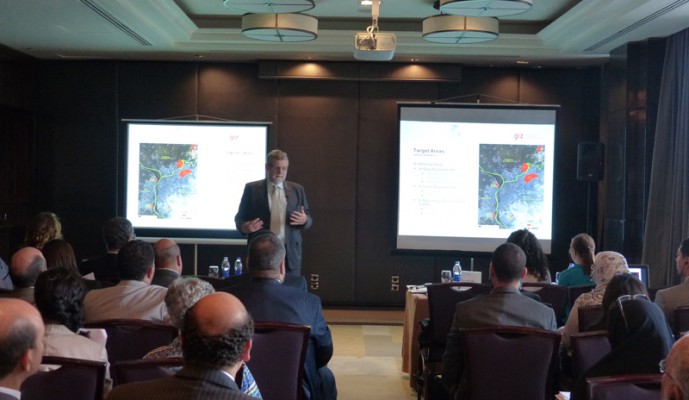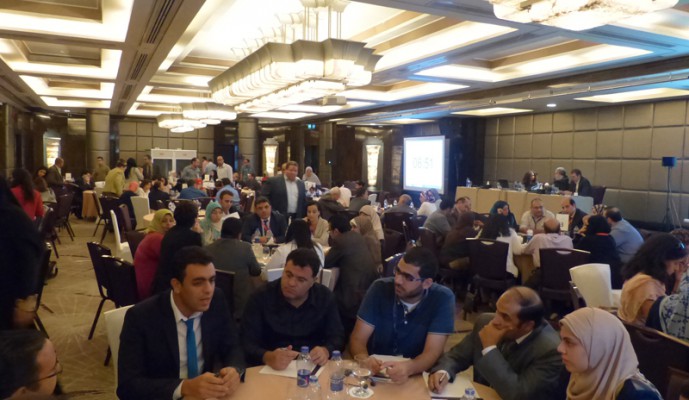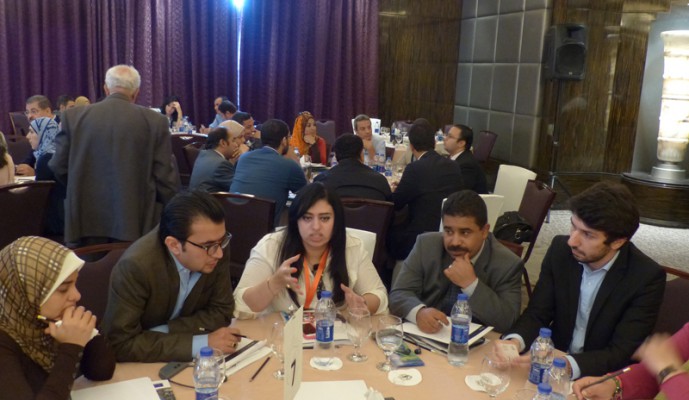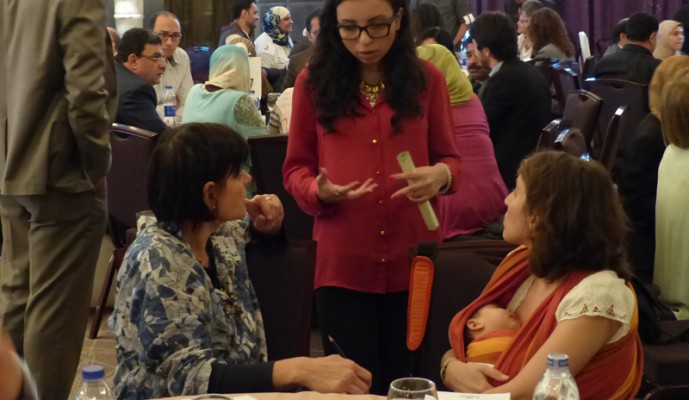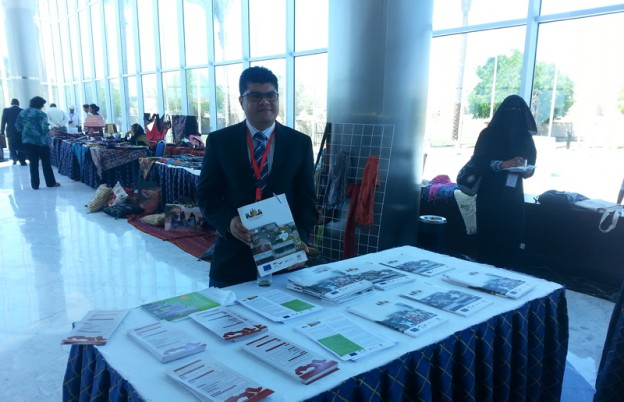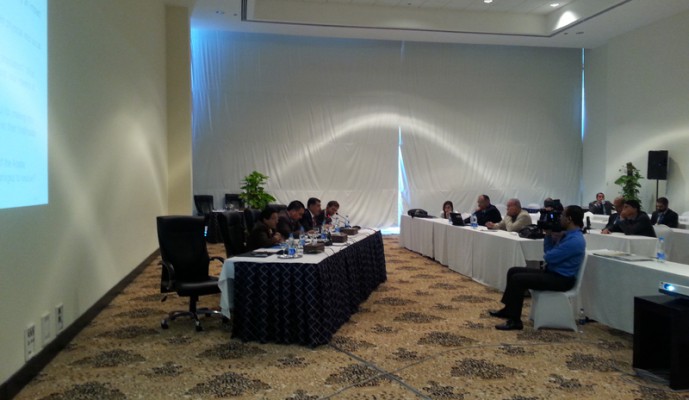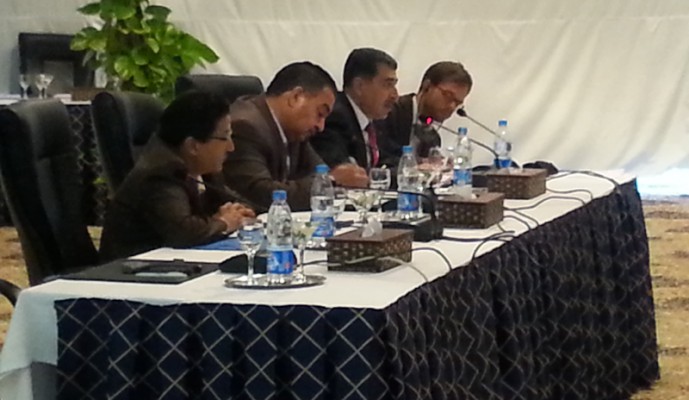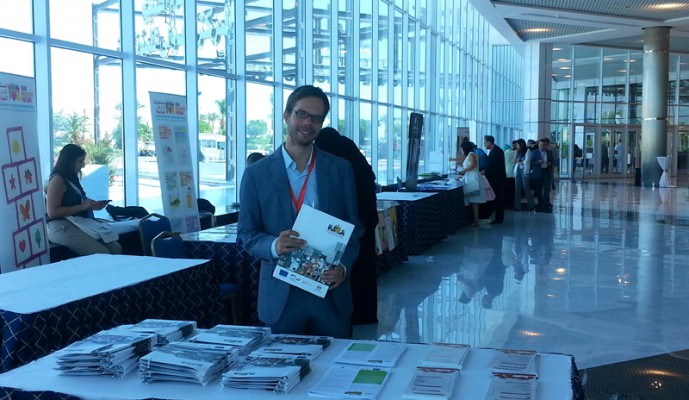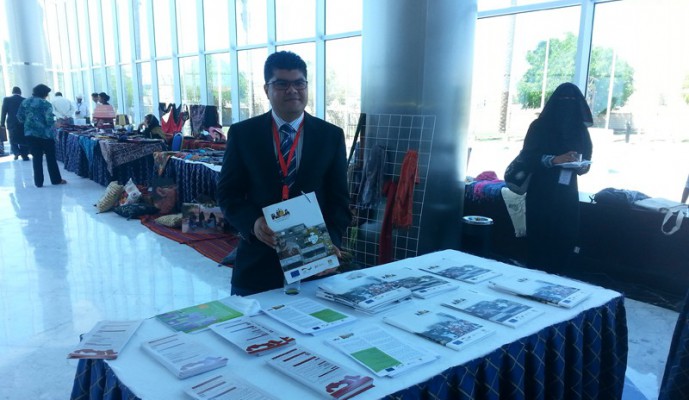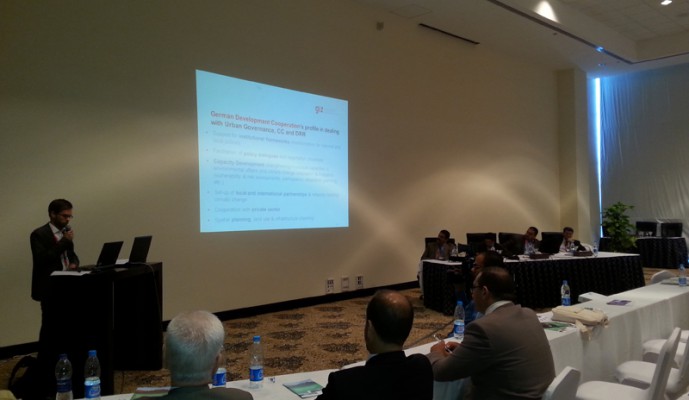The Governor of Qalyubeya Inaugurates an Integrated Resource Recovery Centre in Khanka City and a Transfer Station in Khosoos City
Cairo, 7th of December 2014, the Participatory Development Programme in Urban Areas (PDP) successfully held a closing ceremony of its Integrated Community Based Solid Waste Management project in the Cities of Khosoos and Khanka together with H.E. Minister Dr. Leila Iskandar, Minister for Urban Renewal and Informal Settlements, H.E. Engineer Mohammed Abdel Zaher, Governor of Qalyubeya, and Mrs. Noémie Bürkl, Counsellor, C-Head of Development Cooperation, German Embassy Cairo. The event, which attracted around 100 participants, took place at the newly established Integrated Resource Recovery Centre (IRRC) in Arab El-Olikat local unit in the City of Khanka. The inauguration of this centre as well as the Transfer Station in Khosoos was part of the full day Ceremony. The integrated community based solid waste management (SWM) project is incorporated within the PDP and has been funded by the Bill & Melinda Gates Foundation with a total amount of USD 5 million, and managed by the GIZ through the support of the Qalyubeya Governorate. “We have put the issue of solid waste management at the Governorate’s top priorities and would like to extend our deepest appreciation to the PDP, using funds provided by the Bill and Melinda Gates Foundation (BMGF) for developing the solid waste management systems in the two Cities of Khosoos and Khanka,” said H.E. Engineer Mohammed Abdel Zaher, Governor of Qalyubeya. “The project positioned Qalyubeya Governorate as a pioneer in this field.”
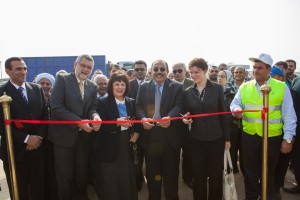
from left to right: Dr. Günther Wehenpohl, Programme Coordinator PDP, H.E. Minister Dr. Leila Iskandar, Minister for Urban Renewal and Informal Settlements, H.E. Engineer Mohammed Abdel Zaher, Governor of Qalyubeya and Mrs. Noémie Bürkl, Counsellor, C-Head of Development Cooperation, German Embassy Cairo, inaugurating the IRRC.
On the national level, the project had the vision of making the Qalyubeya experience serve as a model for the SWM strategy. On the local level, the project created livelihood opportunities for the urban poor in Khosoos and Khanka and improved overall environmental conditions for creating a better living environment. The project contributed to the realisation of establishing an integrated and community based solid waste management system in the Cities of Khosoos and Khanka with around 750,000 inhabitants by following five objectives which were:
- Developing integrated SWM strategies through the participation of all stakeholders
- Raising awareness among the stakeholders on the existing problems and their roles and responsibilities for the improvement of the SWM system
- Building the capacity of concerned stakeholders on sustainable and environmentally sound methods of managing waste
- Improving living and working conditions of informal waste collectors and recyclers
- Establishing sustainable structures for the recovery and recycling of waste
The idea of establishing the Integrated Resource Recovery Centre (IRRC) in Khanka City derived from the concept of deploying alternative fuels, especially for the cement industry. Hence, the centre separates recyclables and produces compost and Refuse Derived Fuel (RDF). It was designed and tendered out following international standards with a total investment cost of about USD 1 million and has a processing capacity of 100 tons of waste per shift. The IRRC is most likely to be tendered out to the private sector for operation with clear conditions to provide the informal sector with working opportunities.
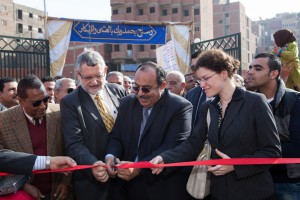
from left to right: Dr. Günther Wehenpohl, Programme Coordinator PDP, H.E. Engineer Mohammed Abdel Zaher, Governor of Qalyubeya and Mrs. Noémie Bürkl, Counsellor, C-Head of Development Cooperation, German Embassy Cairo, inaugurating the Transfer Station.
Transporting and finally disposing waste was a huge challenge for informal waste collectors. Not only did they need to use their own collection equipment when transporting the waste to the landfill but they also invested a lot of time and money, as the distances between the sites are too long. The project established a transfer station inside Khosoos City in order to address these challenges. Instead of going all the way to the landfill the private collectors can transfer their waste to this station. The total investment of the transfer station is about USD 420,000 including three trucks, ten containers and ten tricycles for the waste collectors.
“While the PDP has been the implementer since the start of the project in October 2010 until its end in December 2014, the success lies in the engagement of all participants: the informal waste workers, the citizens, the municipal and governmental employees,” stated Dr. Günther Wehenpohl, the Programme Coordinator of PDP. “They are the main stakeholders and main actors who continue the work after the project’s end to achieve sustainable impact and improved conditions.”
Video: Integrated Community Based Solid Waste Management in Qalyubeya Governorate



